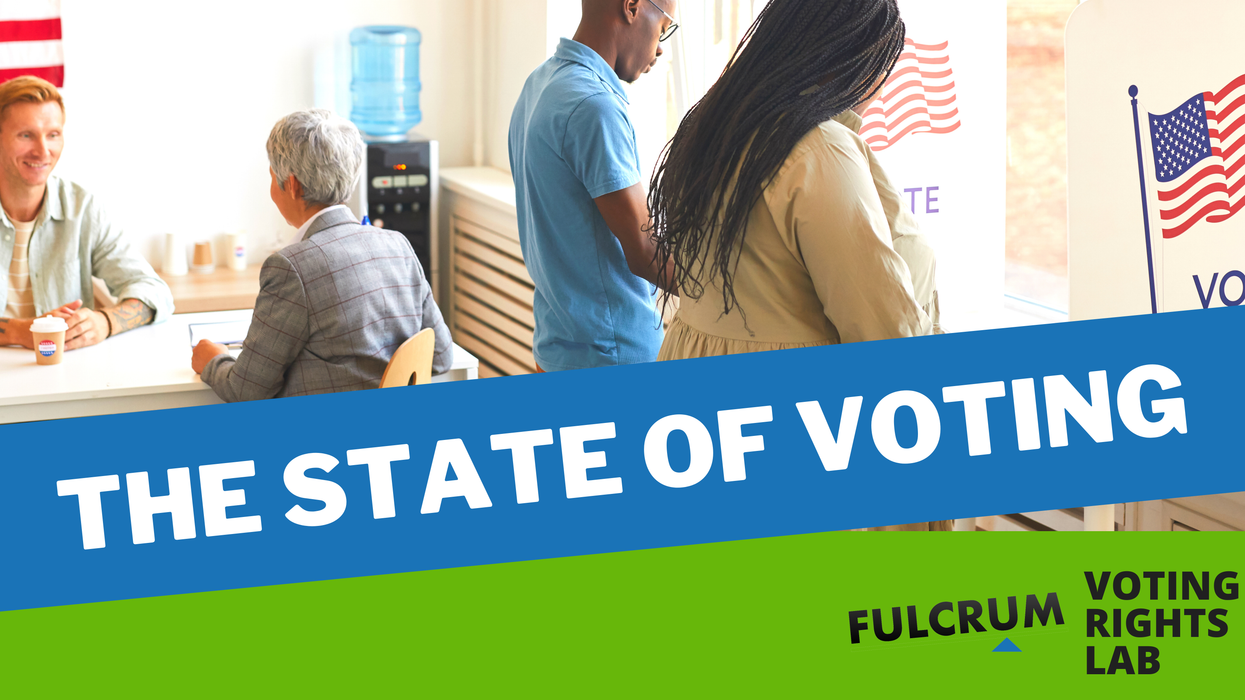This weekly update summarizing legislative activity affecting voting and elections is powered by the Voting Rights Lab. Sign up for VRL’s weekly newsletter here.
The Voting Rights Lab is tracking 2,195 bills so far this session, with 581 bills that tighten voter access or election administration and 1,048 bills that expand the rules. The rest are neutral or mixed or unclear in their impact.
Last week, a federal court in Wisconsin ruled that voters with disabilities are entitled to assistance when returning mail ballots, while a Massachusetts court affirmed the legitimacy of recent election reforms, including no-excuse mail voting and in-person early voting.
Meanwhile, Republican groups sued Pennsylvania counties over ballot envelope curing processes.
Looking ahead: The Michigan Board of State Canvassers deadlocked during a vote on the certification of the Promote the Vote ballot measure, which seeks to make voting more accessible to Michigan voters. The state Supreme Court must decide whether the measure will be on the November ballot by Friday, Sept. 9.
Here are the details:
A federal court rules that Wisconsin voters with disabilities have a right to assistance when returning absentee ballots. A federal court struck down the Wisconsin Election Commission’s guidance requiring absentee ballots to be returned by the voter without assistance from a third party or agent. A U.S. District Court determined this guidance was in violation of Section 208 of the Voting Rights Act, which entitles those with disabilities the right to have assistance when voting.
State and national GOP groups sue Pennsylvania counties over ballot envelope cure. Several national and state Republican groups filed suit against both acting Secretary of the Commonwealth Leigh Chapman and county election officials, seeking to prevent county officials from notifying voters about minor errors on ballot return envelopes and giving them an opportunity to correct (or “cure”) the issue. Pennsylvania statutory law is silent on cure procedures, and the plaintiffs argue that the varying procedures between counties can lead to unequal treatment of voters. The plaintiffs separately rely on a version of the “independent state legislature” theory by arguing that counties may not create cure procedures unless explicitly authorized by the legislature.
Massachusetts court affirms validity of election reforms. The Supreme Judicial Court for the County of Suffolk rejected a state constitutional challenge to early voting and mail voting legislation brought by the state Republican Party. The plaintiffs in the case argued that the state Constitution does not allow the Legislature to establish no-excuse mail voting or in-person early voting.
Michigan canvassing board deadlocks on ballot measure. The Michigan Board of State Canvassers voted 2-2 on the question of certification of the Promote the Vote ballot measure for the November ballot. If approved by voters, the measure would increase access to in-person early voting, require a minimum number of ballot drop boxes in every city or township, and establish guardrails for boards of canvassers throughout the election certification process. Due to the deadlock by the state board, the state Supreme Court must decide whether the measure will be on the November ballot by Friday.




















